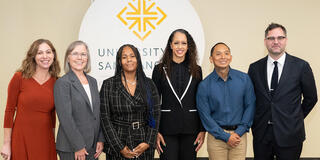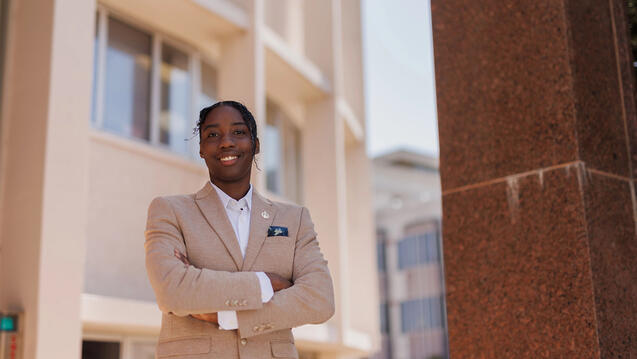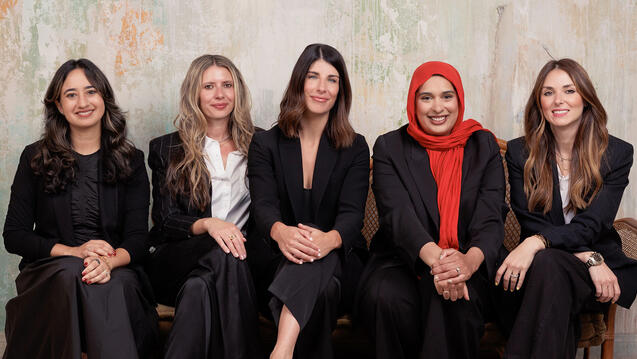Driving Change: Barnett Chair Second Chance Summit

On October 10, the Barnett Chair Second Chance Summit brought together leaders and change-makers from across the criminal legal system to talk about resentencing, rehabilitation, and reentry.
The full-day symposium featured wide-ranging discussions on innovative legislation and transformative programs that provide pathways to welcome home those who have paid their debt to society while also keeping communities safe.
In her introductory remarks, Professor Lara Bazelon, the Philip and Muriel Barnett Chair in Trial Advocacy and Director of USF’s Racial Justice Clinic, called attention to the urgent need to address over-incarceration and to acknowledge “the inability of the legal system to deliver real justice” to crime survivors. She further emphasized the harm and futility of excessive, racially disparate sentences. Her perspective was echoed by California Assemblymember Phil Ting, who presented sobering statistics, noting that “the United States’ incarceration rate is more than double that of China and Russia on a per capita basis.” Ting spoke about the role of recent legislative efforts, such as AB 600, which allows judges to recall sentences previously imposed if there has been a change in the law.
The morning panel, “Rehabilitation and Reentry: Community and Public Safety Perspectives,” brought real-world experiences to the forefront, featuring LaNaisha Edwards, who works for the Alliance for Safety and Justice, and is a crime survivor, and criminal justice reform advocate Dara Yin, a formerly incarcerated individual. Fellow panelists San Francisco District Attorney Brooke Jenkins and California Board of Parole Hearings Executive Officer Jennifer Shaffer highlighted the need for greater investment in rehabilitation programs that support individuals during and after their incarceration. “My job is to protect the public and that means preventing crime in the first place,” Jenkins said. “If there’s zero infrastructure upon re-entry, people lean back into the behavior that got them into the system in the first place.” DA Jenkins also stressed the eye-opening impact of visiting California Department of Corrections and Rehabilitation facilities and meeting incarcerated Californians face to face; she urged fellow prosecutors and judges to make prison visits a priority. Yin, who credited his transformation to key programs like Paws For Life, emphasized the need for more robust education and job-training opportunities in custody.
AB 600 also featured prominently during a panel discussion with Los Angeles County Superior Court Judge Daniel Lowenthal, San Francisco County Superior Court Judge Brendan Conroy, and Alameda County Superior Judge Thomas E. Stevens, moderated by Judge LaDoris Cordell (ret.). The law, which was authored by Assemblymember Ting and co-sponsored by USF’s Racial Justice Clinic, went into effect this year, making critical revisions to the “second look” resentencing statute to improve the resentencing process and expand judicial authority to recall excessive sentences. The panelists, each with extensive experience presiding over post-conviction cases, discussed the application of the discretionary resentencing statute, with Judge Cordell noting that sentencing itself is “the most difficult thing that judges do.” Panelists discussed the thoroughness and care that goes into their decisions to recall and resentence, and agreed that greater administrative resources are required for the courts to keep track of and meaningfully respond to requests for resentencing.
The lunchtime panel featured speakers from USC’s Post-Conviction Justice Project (PCJP), led by Clinic Director Heidi Rummel and Legal Fellow Danielle Wilkins. They were joined by three former clients, Tony Huynh, Kunlyna Tauch, and Dara Yin. Huynh and Tauch were resentenced and released from custody this year through AB 600; Yin’s sentence was commuted in 2022 and they were subsequently granted parole. All three PCJP clients spoke at length about their transformation in custody and stressed the significance of friendship and mentorship, and how they supported each other through their respective rehabilitative journeys. In a particularly moving portion of the lunchtime panel, Rummel took a moment to recognize the many formerly incarcerated individuals in the audience and invited them to share the ways in which they are continuing to support those in custody and giving back to their communities now that they are home.
The final panel of the day, “Discretionary Resentencing: Implementation & Collaboration, Challenges & Opportunities,” featured practitioners from across the state, representing prosecutors, public defenders, and law school clinics. The conversation centered on the ways panelists have approached the implementation of new resentencing laws, with a particular emphasis on collaboration with other key stakeholders in the criminal legal system to streamline the process of identifying eligible candidates for resentencing and to facilitate efforts to get meritorious cases back into court. Kaitlyn McCarthy of the San Diego Office of the Public Defender detailed the months-long joint efforts between her office, the prosecutor’s office, and the local courts to create a streamlined process for handling the influx of requests for resentencing consideration. Similarly, through a collaborative process with the local prosecutor’s office, Contra Costa County Assistant Public Defender Rebecca Brackman’s Post-Conviction Unit has successfully resentenced over 100 clients in under two years. Stanford Three Strikes Clinic Director Michael Romano and Santa Clara County Assistant District Attorney David Angel shared lessons learned from previous large-scale resentencing projects: the 2012 amendments to the Three Strikes Law (Prop 36) and the Santa Clara District Attorney Jeff Rosen’s decision earlier this year to resentence all of Santa Clara’s death row inmates to life without the possibility of parole.
The event concluded with a keynote address from Alameda County Chief Public Defender Brendon Woods ’96. In his remarks, Woods discussed the history of mass incarceration, its origins in the enslavement of Black people, and its ongoing disproportionate impact on communities of color. He challenged the audience—lawyers, judges, legislators, law students, and citizens alike—to recognize their roles in either perpetuating or dismantling systems of inequality and oppression.


